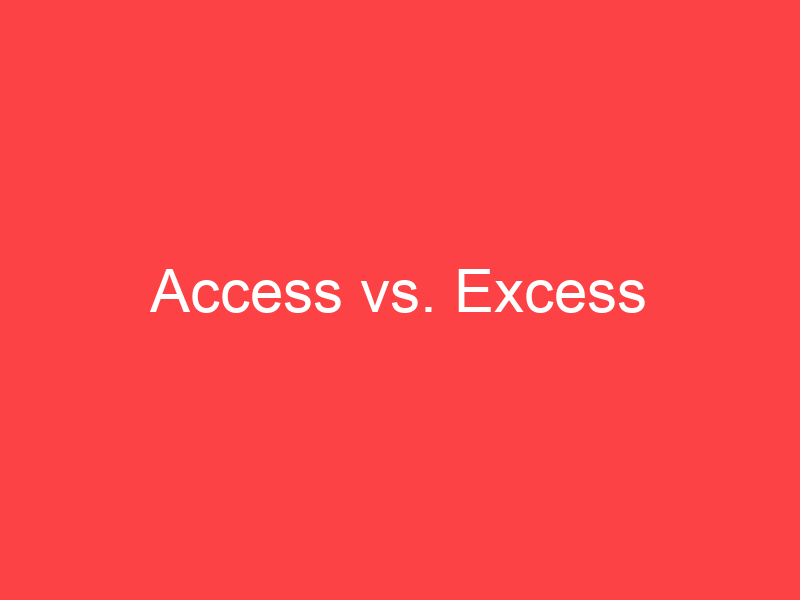-
Access (noun)
A way or means of approaching or entering; an entrance; a passage.
-
Access (noun)
The act of approaching or entering; an advance.
-
Access (noun)
The right or ability of approaching or entering; admittance; admission; accessibility.
-
Access (noun)
The quality of being easy to approach or enter.
-
Access (noun)
Admission to sexual intercourse.
-
Access (noun)
An increase by addition; accession
“an access of territory”
-
Access (noun)
An onset, attack, or fit of disease; an ague fit.
-
Access (noun)
An outburst of an emotion; a paroxysm; a fit of passion
-
Access (noun)
The right of a non-custodial parent to visit their child.
-
Access (noun)
The process of locating data in memory.
-
Access (noun)
Connection to or communication with a computer program or to the Internet.
-
Access (verb)
To gain or obtain access to.
-
Access (verb)
To have access to (data).
“I can’t access most of the data on the computer without a password.”
-
Excess (noun)
The state of surpassing or going beyond limits; the being of a measure beyond sufficiency, necessity, or duty; that which exceeds what is usual or proper
“The excess of heavy water was given away to the neighbouring country.”
-
Excess (noun)
The degree or amount by which one thing or number exceeds another; remainder.
“The difference between two numbers is the excess of one over the other.”
-
Excess (noun)
An undue indulgence of the appetite; transgression of proper moderation in natural gratifications; intemperance; dissipation.
-
Excess (noun)
Spherical excess, the amount by which the sum of the three angles of a spherical triangle exceeds two right angles. The spherical excess is proportional to the area of the triangle.
-
Excess (noun)
A condition on an insurance policy by which the insured pays for a part of the claim.
-
Excess (adjective)
More than is normal, necessary or specified.
-
Excess (verb)
To declare (an employee) surplus to requirements, such that he or she might not be given work.

